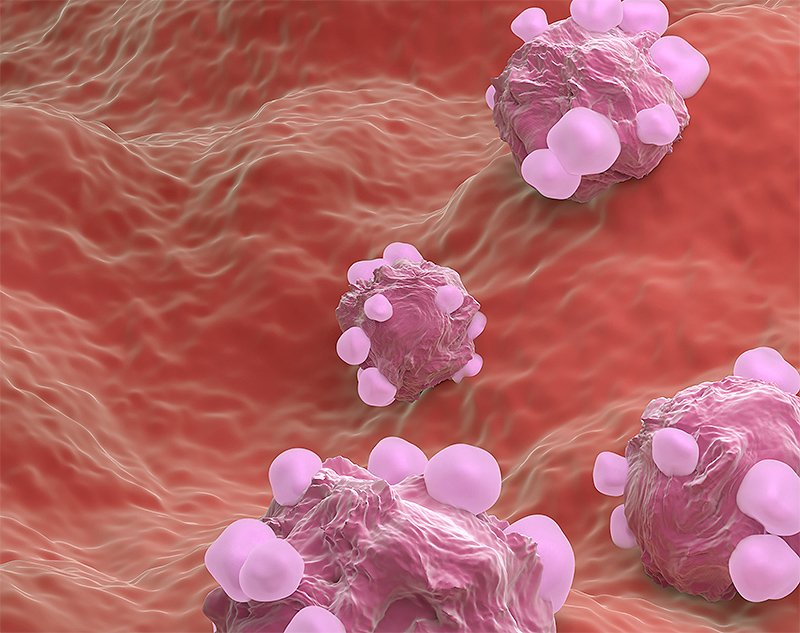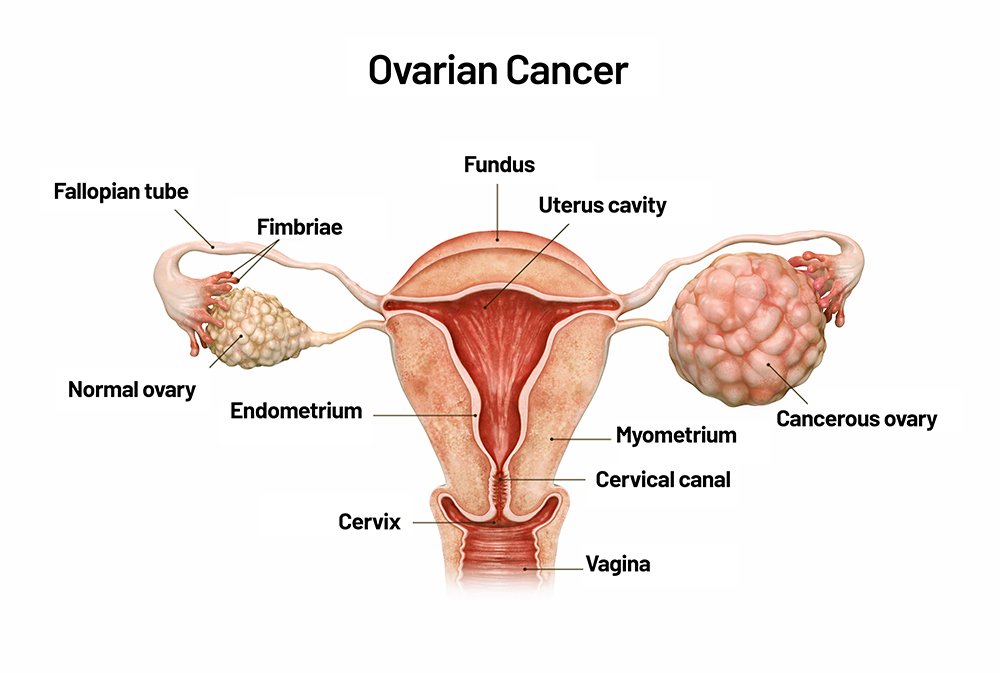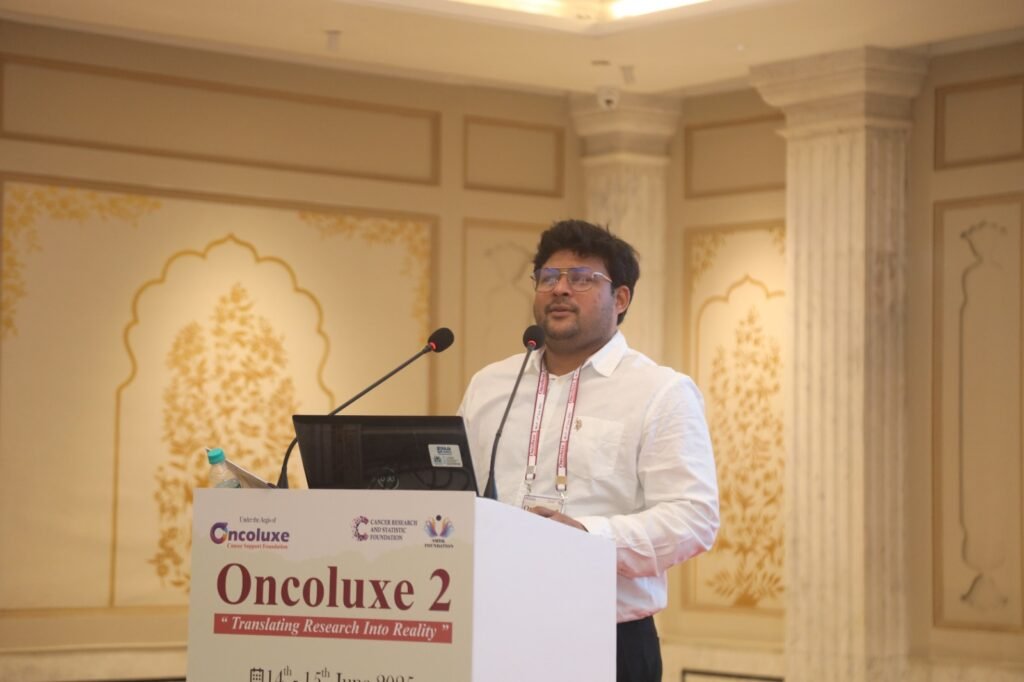Introduction and Overview: Hope and Healing in Bikaner
A diagnosis of ovarian cancer can feel overwhelming, ushering in a period of uncertainty and deep concern. Known as the “silent killer” due to its often subtle early symptoms, this disease requires immediate, expert medical intervention. For residents of Bikaner and the surrounding regions, the anxiety of such a diagnosis has historically been compounded by the need to travel to larger metropolitan cities for specialized care. However, the landscape of cancer care has evolved dramatically. Today, world-class Ovarian Cancer Treatment in Bikaner is not just a possibility but a reality, led by a highly qualified Oncology Specialist.

Finding the Best Oncologist in Bikaner is the most critical step a patient and their family can take, and this search for a trusted Bikaner Cancer Doctor now leads to advanced, local solutions. This progress ensures that patients receive timely, state-of-the-art care, combining the latest medical advancements with compassionate support, right here in their community. The availability of a top-tier Oncology Specialist has transformed the approach to Ovarian Cancer Treatment in Bikaner, making comprehensive care accessible and reducing the burden on families. When facing this challenge, knowing that the Best Oncologist in Bikaner is within reach provides immense reassurance. The guidance of an experienced Bikaner Cancer Doctor is invaluable from diagnosis through every stage of treatment.
Ovarian cancer originates in the ovaries, the female reproductive glands responsible for producing eggs and the hormones estrogen and progesterone. It can also begin in the fallopian tubes or the peritoneum (the lining of the abdominal cavity). Because there is no routine screening test and its early symptoms are often vague and easily attributed to other common ailments, ovarian cancer is frequently diagnosed at an advanced stage when it has already spread beyond the ovaries. This makes the choice of your medical team absolutely paramount. An expert Oncology Specialist who is deeply familiar with the nuances of this specific cancer is essential for accurate staging, personalized treatment planning, and managing the complexities of the disease.
The goal of modern Ovarian Cancer Treatment in Bikaner is not only to fight the disease aggressively but also to maintain the patient’s quality of life. This patient-centric philosophy is the hallmark of the care provided by the Best Oncologist in Bikaner. As a leading Bikaner Cancer Doctor, the focus is on a holistic approach that addresses the physical, emotional, and psychological needs of each patient, ensuring they feel supported and empowered throughout their journey. This level of dedicated care defines the exceptional standard of Ovarian Cancer Treatment in Bikaner.
Symptoms of Ovarian Cancer: Listening to Your Body’s Whispers
The challenge with ovarian cancer lies in its elusive initial presentation. The symptoms are often non-specific and can be mistaken for digestive issues or normal aging processes. However, the key difference is their persistence and frequency. If you experience these symptoms more than 12 times a month and they are new or unusual for you, it is crucial to consult a doctor, preferably an Oncology Specialist.

Key Symptoms to Watch For:
- Persistent Bloating: This is one of the most common signs. It’s not the kind of bloating that comes and goes with meals but a constant feeling of fullness and pressure in the abdomen that doesn’t resolve. This can be caused by the buildup of fluid (ascites) or the tumor itself.
- Pelvic or Abdominal Pain: A dull, persistent ache or discomfort in the lower abdomen, pelvis, or back that doesn’t go away. This is different from normal menstrual cramps.
- Difficulty Eating or Feeling Full Quickly: Many women report feeling full after eating only a small amount of food. This early satiety can be due to the tumor pressing on the stomach or the presence of abdominal fluid.
- Urinary Symptoms (Urgency or Frequency): A sudden, urgent need to urinate or having to urinate more often than usual. This occurs when the tumor presses against the bladder.
Other Potential Symptoms:
- Fatigue: A profound and persistent sense of tiredness that is not relieved by rest.
- Upset Stomach or Heartburn: Chronic indigestion or nausea.
- Constipation or Changes in Bowel Habits: A noticeable and persistent change from your normal bowel function.
- Pain During Intercourse (Dyspareunia): Discomfort or pain during sex.
- Unexplained Weight Loss: Losing weight without trying.
- Abnormal Vaginal Bleeding: Particularly any bleeding after menopause.
It cannot be stressed enough that these symptoms do not automatically mean you have cancer. They are often caused by benign conditions. However, the potential seriousness demands a proper evaluation. Dismissing persistent symptoms can delay diagnosis and impact the effectiveness of treatment. A proactive consultation with a trusted Bikaner Cancer Doctor ensures that your concerns are taken seriously and investigated thoroughly, which is a cornerstone of effective Ovarian Cancer Treatment in Bikaner.
Causes and Risk Factors of Ovarian Cancer
While the exact cause of most ovarian cancers is unknown, researchers have identified several factors that can increase a woman’s risk of developing the disease. Understanding these risks is important for awareness and, in some cases, for taking preventive measures. A knowledgeable Oncology Specialist can help you assess your personal risk profile.

Genetic and Medical Risk Factors:
- Inherited Gene Mutations: This is the most significant risk factor. Mutations in the breast cancer genes 1 and 2 (BRCA1 and BRCA2) are responsible for a substantial percentage of hereditary ovarian cancers. These mutations can be inherited from either the mother’s or the father’s side of the family. Genetic syndromes like Lynch syndrome (also known as Hereditary Non-Polyposis Colorectal Cancer) and Peutz-Jeghers syndrome also increase the risk.
- Family History: Having a close relative (mother, sister, or daughter) with ovarian, breast, or colorectal cancer increases your risk, even without a known gene mutation. The more relatives with these cancers, the higher the risk.
- Personal History of Cancer: A previous diagnosis of breast, uterine, or colorectal cancer can increase the risk of developing ovarian cancer.
- Increasing Age: The risk of ovarian cancer increases with age, with most cases developing after menopause. Half of all ovarian cancers are diagnosed in women aged 63 or older.
- Endometriosis: This condition, where tissue similar to the lining of the uterus grows outside the uterus, has been linked to an increased risk of certain types of ovarian cancer.
Lifestyle and Hormonal Risk Factors:
- Reproductive History: Women who have never been pregnant or had their first full-term pregnancy after the age of 35 have a slightly higher risk. Conversely, each full-term pregnancy appears to reduce the risk.
- Hormone Replacement Therapy (HRT): Using estrogen-only HRT after menopause for an extended period (more than 5-10 years) has been shown to increase the risk of ovarian cancer.
- Obesity: Having a Body Mass Index (BMI) of 30 or higher is linked to a higher risk of developing several cancers, including ovarian cancer. Fat tissue produces estrogen, which can fuel the growth of some cancer cells.
- Infertility: Some research suggests a link between infertility and ovarian cancer risk, although it is unclear if the risk is from the infertility itself or from some of the drugs used for fertility treatments.
Having one or more risk factors does not mean you will get ovarian cancer. Many women who get the disease have no known risk factors. However, if you have a strong family history or other significant risks, discussing them with the Best Oncologist in Bikaner can help you make informed decisions about genetic testing and risk-reduction strategies. A thorough risk assessment by a Bikaner Cancer Doctor is a vital part of proactive health management.
Treatment of Ovarian Cancer: A Personalized Approach in Bikaner by Dr. Rahul Rai
Navigating the complexities of ovarian cancer treatment requires a highly skilled, experienced, and compassionate expert who can tailor a plan to your specific situation. The choice of your oncologist is the single most important decision you will make. In this regard, Dr. Rahul Rai has firmly established himself as the Best Oncologist in Bikaner, bringing a wealth of knowledge from one of the world’s leading cancer centers to the heart of Rajasthan. His approach is built on a foundation of clinical excellence, personalized care, and a deep commitment to his patients’ well-being.
He understands that premier Ovarian Cancer Treatment in Bikaner involves more than just medicine; it requires building a partnership with the patient, providing clarity, and instilling hope. As a leading Oncology Specialist, Dr. Rahul Rai’s philosophy centers on using evidence-based medicine to create a unique treatment roadmap for each patient, considering the cancer’s stage and molecular characteristics, as well as the patient’s overall health and personal preferences. His work as a dedicated Bikaner Cancer Doctor has been instrumental in ensuring that women no longer need to endure the hardship of travel for world-class care.
Treatment for ovarian cancer is multifaceted and often involves a combination of therapies. The primary goals are to remove as much of the cancer as possible through surgery and then to eliminate any remaining cancer cells with systemic treatments like chemotherapy and targeted therapy. An experienced Oncology Specialist will coordinate this multidisciplinary approach. The journey of Ovarian Cancer Treatment in Bikaner under Dr. Rai’s care is meticulously planned and executed with precision.
Detailed Treatment Modalities:
A. Surgical Intervention (Cytoreductive or Debulking Surgery) Surgery is almost always the first and most critical step. The procedure is performed by a gynecologic oncologist, a surgeon specializing in cancers of the female reproductive system. The primary goal is “optimal debulking,” which means removing all visible tumors, or at least reducing them to less than 1 cm in diameter.
- Staging: During the surgery, the surgeon will carefully examine the abdominal cavity to determine the cancer’s stage (how far it has spread). This involves taking tissue samples (biopsies) from various areas of the pelvis and abdomen.
- Procedures: The surgery typically includes a total hysterectomy (removal of the uterus and cervix), a bilateral salpingo-oophorectomy (removal of both ovaries and fallopian tubes), and removal of the omentum (a layer of fatty tissue covering the abdominal organs).
Effective surgery is a crucial predictor of long-term outcomes, and its success relies on the skill of the surgical team, a key component of comprehensive Ovarian Cancer Treatment in Bikaner.
B. Chemotherapy Following surgery, nearly all patients with ovarian cancer receive chemotherapy to kill any cancer cells that may have been left behind.
- Regimens: The standard first-line chemotherapy for ovarian cancer is a combination of a platinum-based drug (like Carboplatin) and a taxane drug (like Paclitaxel). These are typically administered intravenously (IV) every 3-4 weeks for several cycles.
- Intraperitoneal (IP) Chemotherapy: For some women with Stage III cancer, chemotherapy drugs may be delivered directly into the abdominal cavity through a thin tube. This method can be more effective but may also have more intense side effects. The administration and management of these powerful drugs require the expertise of a medical oncologist. As a distinguished Bikaner Cancer Doctor, Dr. Rahul Rai meticulously calculates dosages and manages side effects to ensure patients can tolerate and complete their treatment effectively. This level of oversight is what you should expect from the Best Oncologist in Bikaner.
C. Targeted Therapy This is one of the most exciting advancements in cancer care. Targeted drugs work by identifying and attacking specific vulnerabilities in cancer cells, often with fewer side effects than traditional chemotherapy.
- PARP Inhibitors: These drugs are particularly effective in women with BRCA mutations. PARP (Poly ADP-ribose polymerase) is a protein that helps repair damaged DNA in cells. Cancer cells with a BRCA mutation already have a faulty DNA repair system. A PARP inhibitor blocks a second repair pathway, causing the cancer cells to die. Drugs like Olaparib, Niraparib, and Rucaparib are often used as “maintenance therapy” after chemotherapy to delay or prevent recurrence.
- Anti-Angiogenesis Drugs (e.g., Bevacizumab): These drugs work by blocking the formation of new blood vessels that tumors need to grow and spread. Bevacizumab is often given along with chemotherapy and may also be continued as a maintenance therapy.
Accessing these advanced treatments is a key advantage of modern Ovarian Cancer Treatment in Bikaner. An expert Oncology Specialist like Dr. Rahul Rai stays at the forefront of this research, using molecular testing of the tumor to identify which patients will benefit most from these revolutionary therapies.
D. Immunotherapy Immunotherapy harnesses the power of the body’s own immune system to fight cancer. While its role in ovarian cancer is still evolving, checkpoint inhibitors (like Pembrolizumab) have shown promise in a subset of patients, particularly those whose tumors have specific genetic markers. These drugs help the immune system recognize and attack cancer cells more effectively. This cutting-edge approach represents the future, and its availability is a testament to the high standard of care offered by a leading Bikaner Cancer Doctor.
Meet Your Oncology Specialist: Dr. Rahul Rai’s Credentials The trust and confidence patients place in their doctor are built on a foundation of proven expertise and compassionate care. Dr. Rahul Rai’s distinguished background demonstrates his commitment to the highest standards of oncology. His experience makes him widely regarded as the Best Oncologist in Bikaner.

- MBBS
- MD (Radiation Oncology), SPMC Bikaner
- DM (Medical Oncology), Tata Memorial Hospital, Mumbai
- Ex Assistant Professor at Tata Memorial Hospital, Mumbai
- Over 10 years of experience in cancer treatment
His training at Tata Memorial Hospital, India’s premier cancer center, provided him with unparalleled experience in managing the most complex cancer cases. By bringing this expertise back to his community, Dr. Rai has elevated the standard of Ovarian Cancer Treatment in Bikaner, ensuring every patient has access to care that is both world-class and deeply personal.